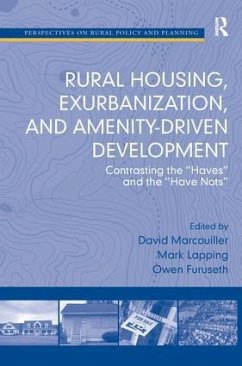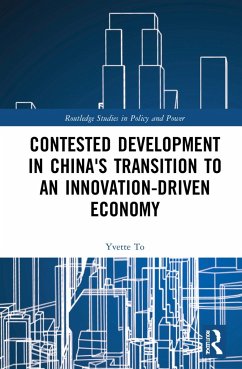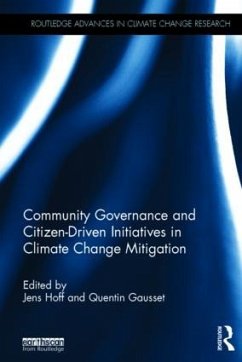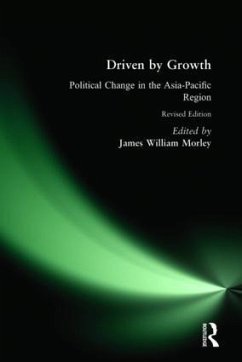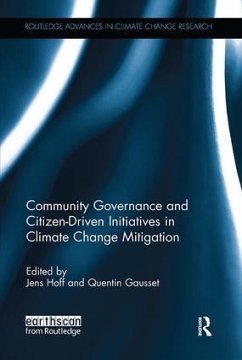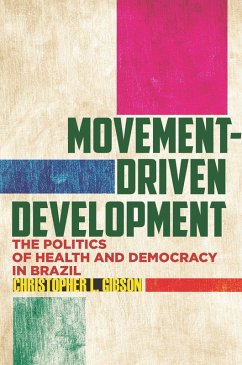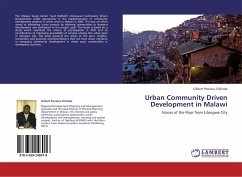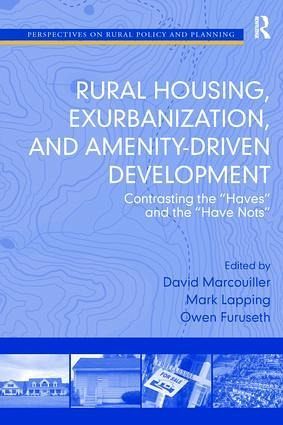
Rural Housing, Exurbanization, and Amenity-Driven Development
Contrasting the 'Haves' and the 'Have Nots'
Herausgeber: Marcouiller, David
Versandkostenfrei!
Versandfertig in 1-2 Wochen
70,99 €
inkl. MwSt.
Weitere Ausgaben:

PAYBACK Punkte
35 °P sammeln!
Rural America is progressing through a dramatic and sustained post-industrial economic transition. For many, traditional means of household sustenance gained through agriculture, mining and rustic tourism are giving way to large scale corporate agriculture, footloose and globally competitive manufacturing firms, and mass tourism on an unprecedented scale. These changes have brought about an increased presence of affluent amenity migrants and returnees, as well as growing reliance on low-wage, seasonal jobs to sustain rural household incomes. This book argues that the character of rural housing...
Rural America is progressing through a dramatic and sustained post-industrial economic transition. For many, traditional means of household sustenance gained through agriculture, mining and rustic tourism are giving way to large scale corporate agriculture, footloose and globally competitive manufacturing firms, and mass tourism on an unprecedented scale. These changes have brought about an increased presence of affluent amenity migrants and returnees, as well as growing reliance on low-wage, seasonal jobs to sustain rural household incomes. This book argues that the character of rural housing reflects this transition and examines this using contemporary concepts of exurbanization, rural amenity-based development, and comparative distributional descriptions of the "haves" and the "have nots". Despite rapid in-migration and dramatic changes in land use, there remains a strong tendency for communities in rural America to maintain the idyllic small-town myth of large-lot, single-family home-ownership. This neglects to take into account the growing need for affordable housing (both owner-occupied and rental properties) for local residents and seasonal workers. This book suggests that greater emphasis be placed in rural housing policies that account for this rapid social and economic change and the need for affordable rural housing alternatives.





